UNITY— Unity College officials announced Monday the school will explore selling its main campus and is laying off about 15% of its staff as part of sweeping changes to its education program that embraces a “hybrid” approach.

The announcement from the college’s board of trustees comes as the coronavirus pandemic has forced schools nationwide to consider changes to in-person instruction and remote learning.
Unity officials said in June they expected to maintain remote learning for students through the 2020-21 academic year.
Unity officials said in a statement a hybrid learning model would give students “control over their education through a nonstandard calendar, shorter terms, differentiated tuition and a multimodality curriculum that does not rely on maintaining a physical campus.”
The trustees also authorized Unity College administrators “to retain a real estate firm to explore the sale of any assets, including the main campus at 90 Quaker Hill Road” in Unity.
Unity President Melik Peter Khoury said the announcement is “not simply a reaction to the pandemic,” although the “financial impact of COVID-19 certainly expedited our plans.”
Penny Picard Sampson, chairwoman of the Unity Board of Selectmen and a Unity College alumna, said Monday she was “devastated” and shocked by the news, which she learned from reporters.
She added Unity College students contribute much to the community, including making up about half the Fire Department.
Other concerns are the facilities the college provides the town, from the performing arts center to the Field of Dreams park, and the impact on local businesses.
The college has not seen a decrease in enrollment, but it has seen a decline in students in the residential program, Khoury said in a telephone interview Monday.
This fall, he said enrollment is at about 1,000 students. Between 400 and 450 are enrolled in the remote residential program, which is a decline of about 35% from last year.
Campus resources, however, are still accessible to students who are studying remotely, because the hybrid model is not a new concept to the college.
Recognizing that remote learning is not ideal for all students, Khoury said school facilities will open “as soon as we can.”
“It is a critical next step in helping Unity College thrive and better serve our students in the 21st century, while happening to create a model that is relatively pandemic-proof,” he said.
Khoury also said Monday afternoon an internal memorandum was sent to about 15% of faculty and staff to notify them they are being laid off. Between 30 and 33 of the college’s 185 staff members were notified, he said.
“Hybrid Learning retools how we envision education, aligns with the needs of the professional world, and prepares students for their next chapter — whether that is a first job or graduate school — all while giving students control over their educational pace and path,” Khoury said in a statement.
“This transition is also a major stride toward Unity College’s mission to provide a more diverse, just, equitable, and sustainable education.”
“There’s more to learning than computers,” Sampson said. “There has to be more than sitting in front of a computer. Unity has always been hands-on and had small class sizes so you get to know the staff and faculty, and now there’s going to be little of that.”
She said the town had not been notified of the college’s plans.
Sampson said she was concerned about the impact on the town and its businesses.
“I don’t think people are going to realize the impact of no students until we have no students.” Sampson said.
Sampson said it was “not surprising” college officials had not notified town officials of Monday’s announcement.
“Historically speaking, they don’t involve us in any of their decisions,” she said. “Not that they need our approval, but it would be nice to know versus finding out online or getting a call from reporters.”
As of Monday evening, Sampson said, the town had still not received information from the college related to Monday’s announcement.
The town’s economic development committee met Monday evening, and Sampson said the college’s announcement would likely be the main topic of discussion.
Sampson said she was concerned about the loss of the facilities the college provides the town and what will happen with those. She said the college provides resources to the town’s library, and the town also benefits from the Unity College Center for Performing Arts, which was recently revamped, and the Field of Dreams, a large recreational park.
“We don’t know what’s happening,” Sampson said. “We’ll know more later, but until we know more from the college, it’s hard to say what our plans are.”
Having deep roots in Unity, Sampson said she felt a big loss with the college’s announcement.
“I grew up in this town. My mother’s great-uncle donated the land for the college,” she said. “There’s a lot of people that I know have moved here after they graduated from the college. It brings people in and they come to stay. I feel a loss of that for the future.”
Doug Fox, professor of sustainable agriculture and hybrid learning programs liaison, said that in his three decades of teaching, a lot of transitions have happened and that the hybrid model presents many new learning opportunities for students.
“In 30 years time, you see a lot of transitions in a college. Everyone one of them is anxiety producing and then you get to the other side, you’ve got a better program. That’s what I can tell the newer faculty: go ahead, embrace these changes. It’s a lot of work learning how to do something differently, but it’s for a good reason.”
Shifting to this hybrid model, he said, gives students the opportunity to shift their focus from five-to-six classes a semester to only one or two in five weeks, which can improve their performance in those classes. Many students, he said, can attest that when taking five to six classes, there is typically one course that they “skate by” in because of shorter class time periods and juggling other courses. Colorado College, he said, also offers a similar course-style.
“This allows students to really deeply engage in a couple of subjects at once. Students that have experienced it really think it works,” he said. “The great thing about the hybrid program is that students are taking one to two courses at a time in a much more concentrated period and they do a lot better than trying to shift between five to six.”
Although layoffs are happening at the college, Khoury said students will not have any disruptions when completing their degrees. Distance learning, he said, is allowing the college to add five programs over the next few months, and the college is “constantly looking at planning programs.”
“The whole hybrid model will cut costs for students, students will have more of a choice on affordability,” Fox said.
For professors, Fox added, there is a level of forethought that goes into teaching a course over five weeks versus an entire semester.
“(Professors) really have to make every class meeting really count, and it does take a lot of pre-planning,” Fox said. To prepare, he said that the college has taken on two curriculum designers, which they have never had, to work out the kinks and set up the hybrid model.
“These courses are very well thought-through with a lot of review,” Fox said.
Teaching remotely in the sustainable agriculture program has worked well for Fox and his students as he has them working outside wherever they are living and looking at soil, plants and trees from their homes.
“Last spring when we had to pivot (to remote learning) my students were out with GPS units mapping out parks near them and I am able to Google Earth wherever they are,” he added.
In an interview Monday, Khoury said terms at Unity College run about five weeks instead of the typical semester, during which students take five to six courses. He said students typically take one to two classes during the shortened terms and are still set to graduate on time, and even have the opportunity to earn their degrees faster if they wish.
The college in recent years has also seen a “good uptick” in enrollment by those in the military, nontraditional students and multicultural students, according to Khoury.
He added that the hybrid model aims to reduce Unity’s dependence on a “fixed campus,” so the college may invest in remote-learning opportunities.
Unity will also “leverage locations across Maine, including Unity College Sky Lodge in rural Jackman, the rocky coast of Acadia National Park and individual cities like Portland, to provide hands-on learning opportunities in a real-world environment,” college officials said in Monday’s announcement.

The campus of Unity College, including the school greenhouse, right, in Unity. Rich Abrahamson/Morning Sentinel Buy this Photo
“Going from campus-centered to entirely hybrid, with no dependence on a fixed campus, is the very essence of the type of innovation needed to succeed in today’s economic and educational environment,” Khoury said.
“Eliminating a centralized campus allows us to meet Unity students where they are and offer face-to-face and online courses in multiple locations to best fit the learning experience.”
Khoury said a top consideration during the COVID-19 pandemic has been “one life at risk is one life too many.” He said the new model will give Unity students the flexibility they need.
“These are unprecedented times,” Khoury said. “My goal is to make sure that Unity College is as strong as ever during the pandemic.”
He said this has forced him and other college officials to make tough decisions, some of which might seem counterintuitive.
Send questions/comments to the editors.


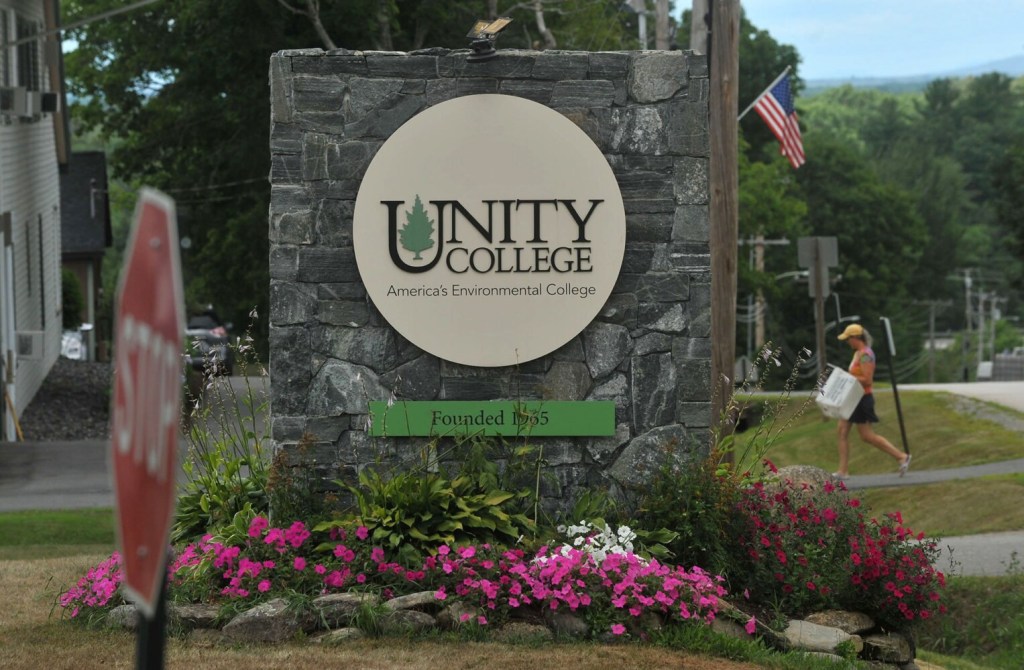
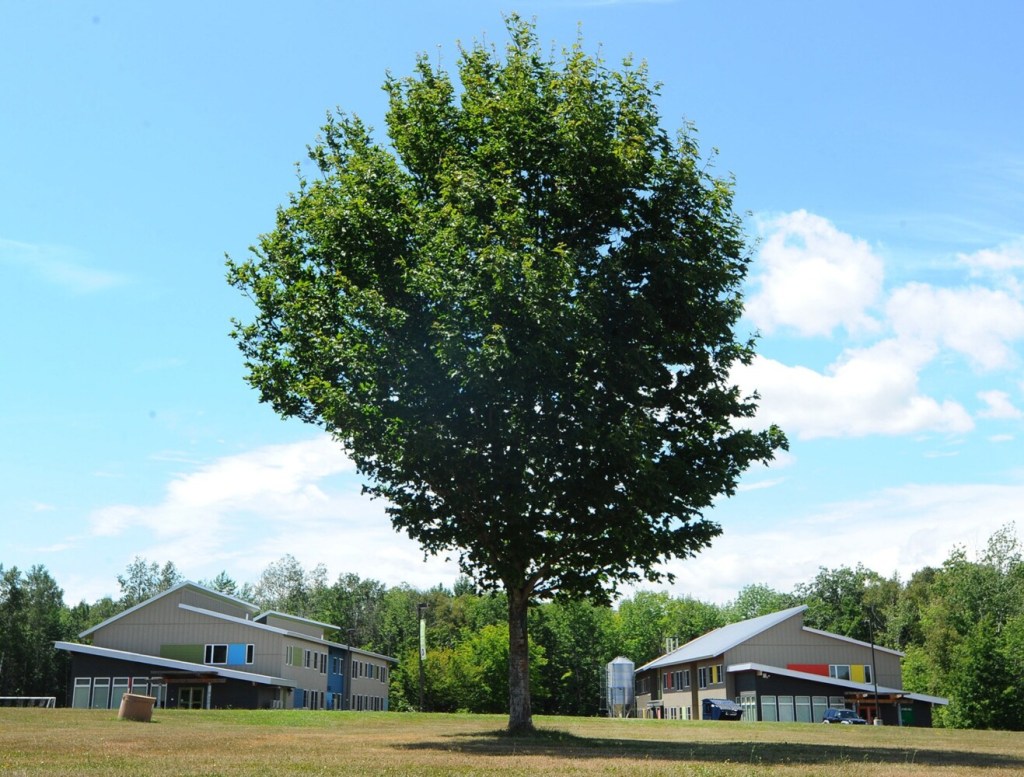
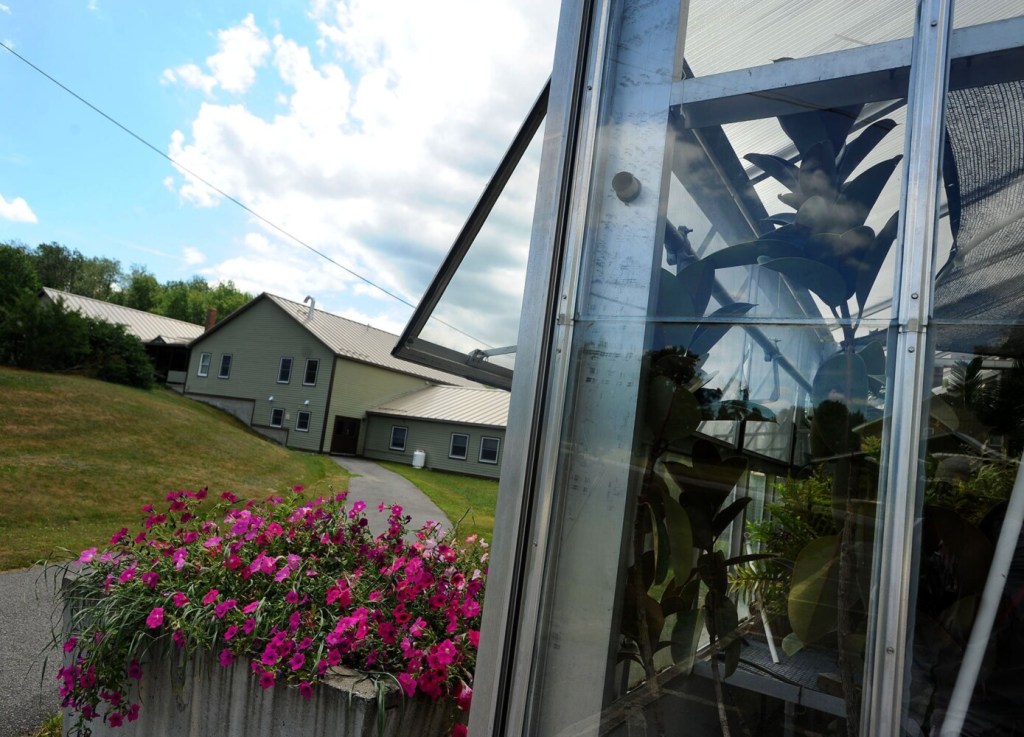
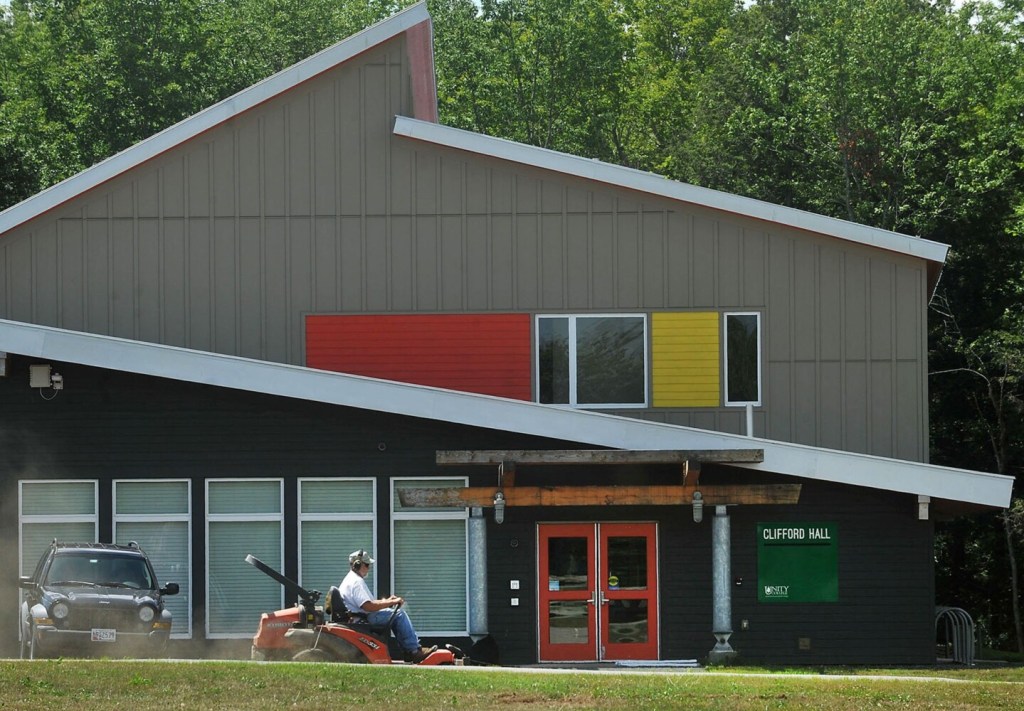
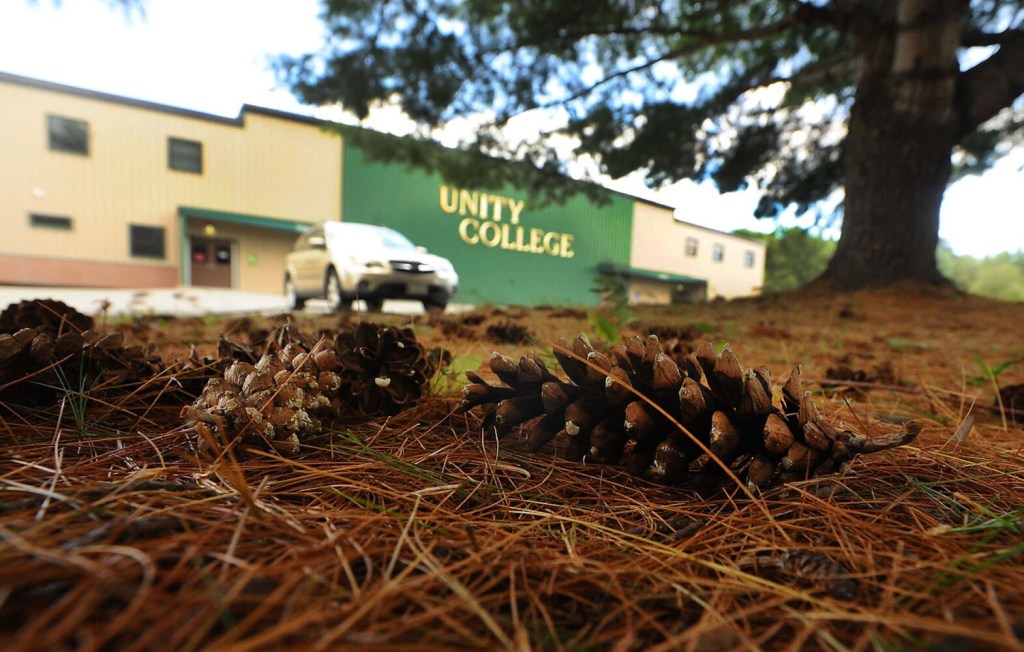
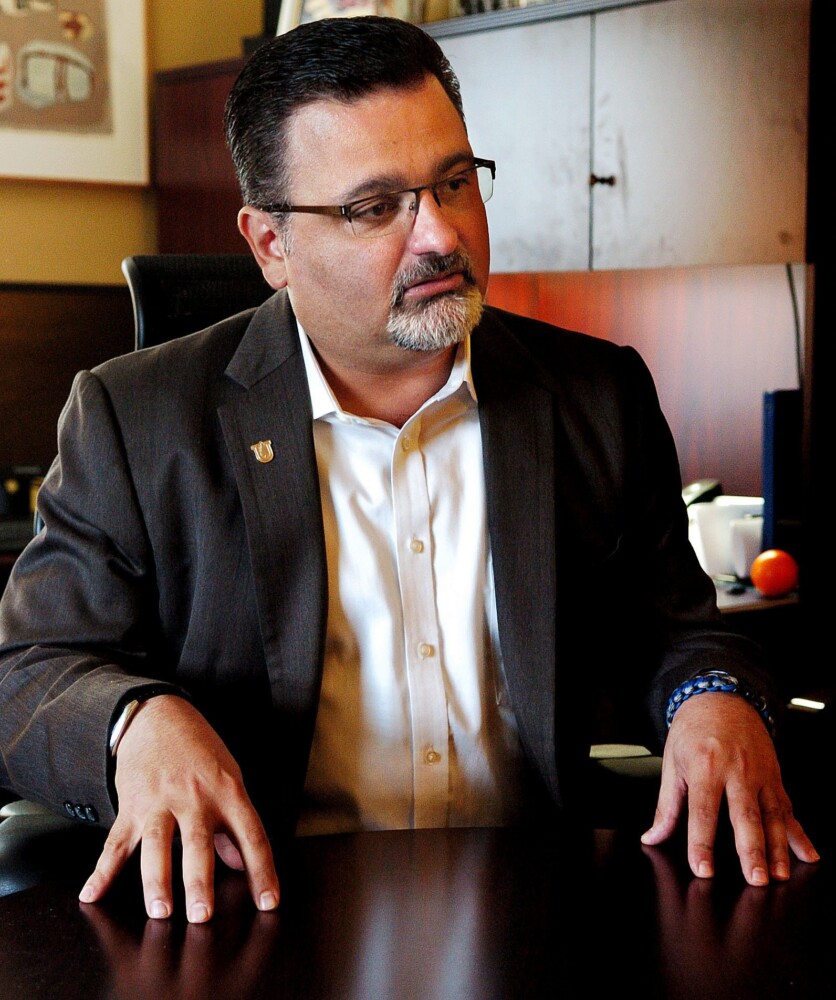

Comments are no longer available on this story